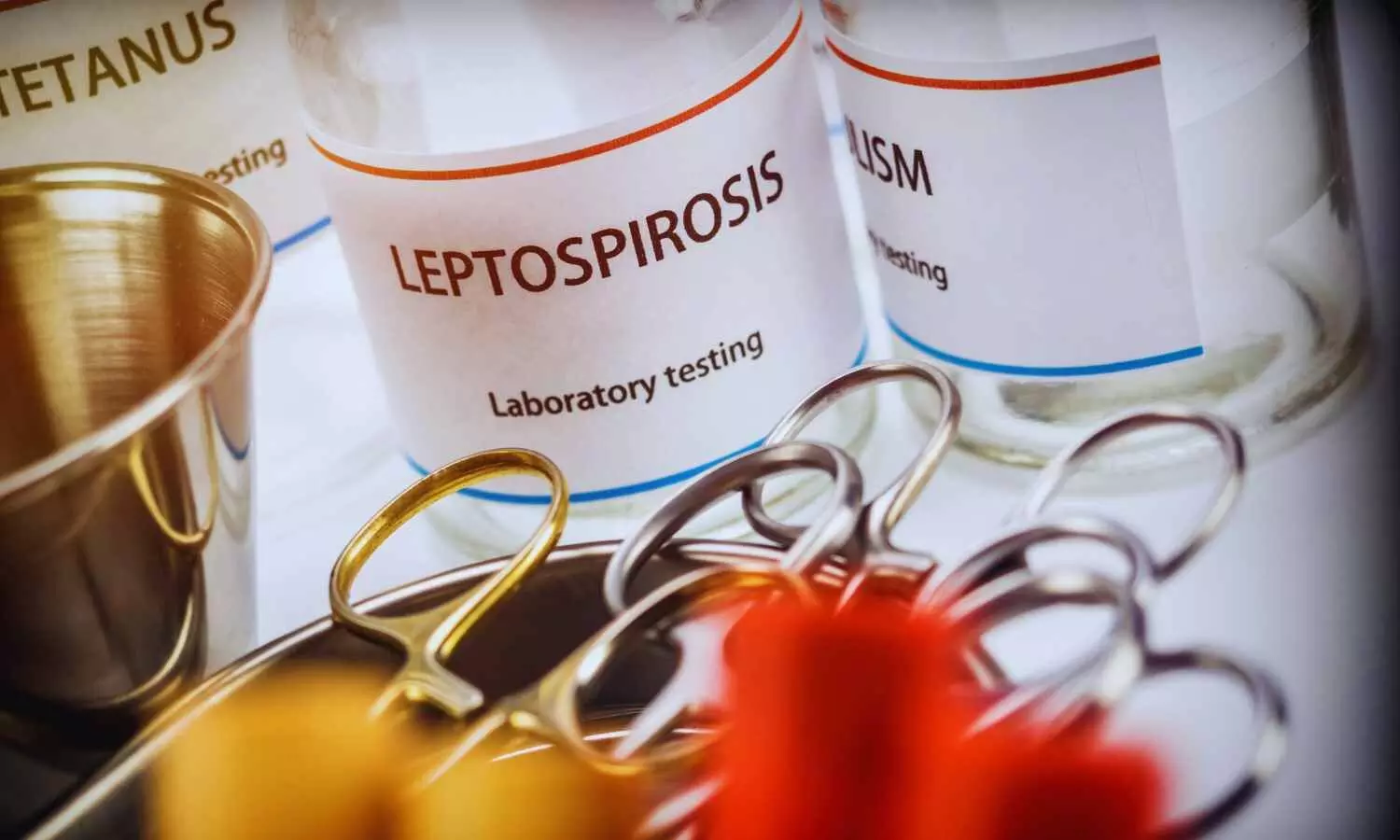Yale researchers develop novel test for leptospirosis
- byDoctor News Daily Team
- 04 October, 2025
- 0 Comments
- 0 Mins

In a new study, Yale School of Medicine (YSM) researchers unveiled a novel diagnostic method for detecting leptospiral virulence-modifying (VM) proteins in the blood and urine of hamsters, an advance that could pave the way for early diagnosis of the tropical diseaseleptospirosisin humans and improved treatment options. The findings were published in the journalMicrobiology Spectrum. Found around the world, leptospirosis affects approximately 1 million people annually, with nearly 60,000 fatalities. The disease is caused by the bacterium Leptospira and is spread through the urine of infected animals. Despite the potential of the disease to cause severe illness when left untreated, early diagnosis has been a significant challenge due to the lack of sensitive and specific diagnostic methods. The research, led by Yale’s Dr. Joseph M. Vinetz and his team, in collaboration with Luna Bioscience, a company founded by Vinetz to develop vaccines for emerging global infectious diseases, has led to the development of a monoclonal antibody (mAb)-based capture immunoassay. This assay detects VM proteins, a recently identified family of leptospiral proteins crucial for disease pathogenesis. “We have long known that leptospirosis severely impacts multiple organ systems, leading to conditions likejaundice,acute kidney injury, and pulmonary hemorrhage,” said Vinetz, a professor of medicine (infectious diseases) at YSM. “Our discovery of these VM proteins as circulating exotoxins gives us a specific target for both diagnostics and potential therapeutic interventions.” Leptospirosis is the first systemic bacterial disease mediated by a toxin — such as tetanus, botulism, or diphtheria — that has the potential for rapid antigen detection by a novel test, he added. The research lays the groundwork for developing rapid, inexpensive diagnostics that can be used in resource-limited settings, where leptospirosis is most prevalent, according to Vinetz, who is also a professor of epidemiology (microbial diseases) at the Yale School of Public Health. The novel diagnostic method holds promise for transforming leptospirosis management globally, he said. “By enabling early detection, health care providers can initiate timely treatments, potentially saving lives and mitigating disease severity,” Vinetz said. “Furthermore, understanding the role of VM proteins in disease pathogenesis could lead to new therapeutic targets and vaccine development opportunities.” Chaurasia R, Jacobs A, Tang J, Dong S, Vinetz JM. 0. Development of leptospiral virulence-modifying protein detection assay: implications for pathogenesis and diagnostic test development. Microbiol Spectr 0:e00018-25. https://doi.org/10.1128/spectrum.00018-25
Disclaimer: This website is designed for healthcare professionals and serves solely for informational purposes.
The content provided should not be interpreted as medical advice, diagnosis, treatment recommendations, prescriptions, or endorsements of specific medical practices. It is not a replacement for professional medical consultation or the expertise of a licensed healthcare provider.
Given the ever-evolving nature of medical science, we strive to keep our information accurate and up to date. However, we do not guarantee the completeness or accuracy of the content.
If you come across any inconsistencies, please reach out to us at
admin@doctornewsdaily.com.
We do not support or endorse medical opinions, treatments, or recommendations that contradict the advice of qualified healthcare professionals.
By using this website, you agree to our
Terms of Use,
Privacy Policy, and
Advertisement Policy.
For further details, please review our
Full Disclaimer.
Recent News
Merck Keytruda wins European Commission nod for lo...
- 30 October, 2025
UP NEET 2025 round 3 allotment results postponed
- 30 October, 2025
Achin Gupta to succeed Umang Vohra as Cipla MD, GC...
- 30 October, 2025
Mumbai shocker: KEM Hospital doctor stabbed by col...
- 30 October, 2025
Daily Newsletter
Get all the top stories from Blogs to keep track.


0 Comments
Post a comment
No comments yet. Be the first to comment!